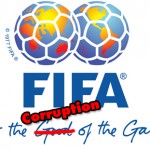
Edward Snowden, the former National Security Agency (NSA) contractor who became one of the most-prolific government whistleblowers in recent times, says he’s generally happy with the way things turned out for him.
And if anyone is keeping score at home, that looks something like this: Leaking thousands of classified documents detailing dozens of clandestine government surveillance initiatives to reporters, fleeing the comforts of a Hawaiian home for a hotel room tucked away in Hong Kong, being accused of and charged with espionage by the feds and eventually settling into frosty Moscow with his long-term girlfriend, where he has remained on the lam for the better part of two years.
“The most liberating thing about burning your life to the ground and becoming an international fugitive is that you no longer have to worry about tomorrow, you just think about today,” Snowden said in remarks delivered at a live question-and-answer session hosted by Amnesty International on Tuesday. “For me, that’s been an incredible experience, and I’m actually grateful for it.”
Read more: Snowden: Court Order on NSA Spy Program ‘Significant’
In the time since the Snowden leaks were first published — it will be two years on June 6 — defense hawks in the upper reaches of the federal government have touted the importance of some of the more highly-scrutinized initiatives: That programs like the phone records collection initiative and another one that purportedly gathered communications data and other information from Internet services, service providers and sometimes the very Internet pipes that carry data back and forth were needed in order to thwart terrorism.
But some of the programs’ most-ardent supporters — including President Obama himself — have walked back their endorsements upon further debate and revelation. A White House review board empaneled by the president found that the NSA’s programs were “not essential to preventing attacks” and that data obtained under the once-secretive programs “could readily have been obtained in a timely manner” using warrants and other court orders.
Read more: REPORT: Before Snowden Leaks, NSA Nearly Axed Phone Data Collection Program
Had it not been for Snowden, the delay may not have happened — intelligence agencies would continue scooping up their vast amounts of records and data with little judicial oversight, save for the Foreign Intelligence Surveillance Court (FISA Court) that has, to date, treated every request by the federal government for surveillance authorities with a rubber-stamp of approval.
Privacy advocates are quick to point out that this week’s passage of the USA Freedom Act is something of a vindication for Snowden. But it’s also worth remembering that the whistleblower who two years set in motion the line of debate and eventual change signed into law Tuesday evening remains in Moscow, charged by the Obama administration with betraying his country — and ultimately unable to return home. Two years on, that still seems wrong.
Let’s take the reforms enacted on Tuesday for what it was: An inch of progression on what is otherwise a half-mile of bad road.
Matthew Keys is a contributing journalist for TheBlot Magazine.





